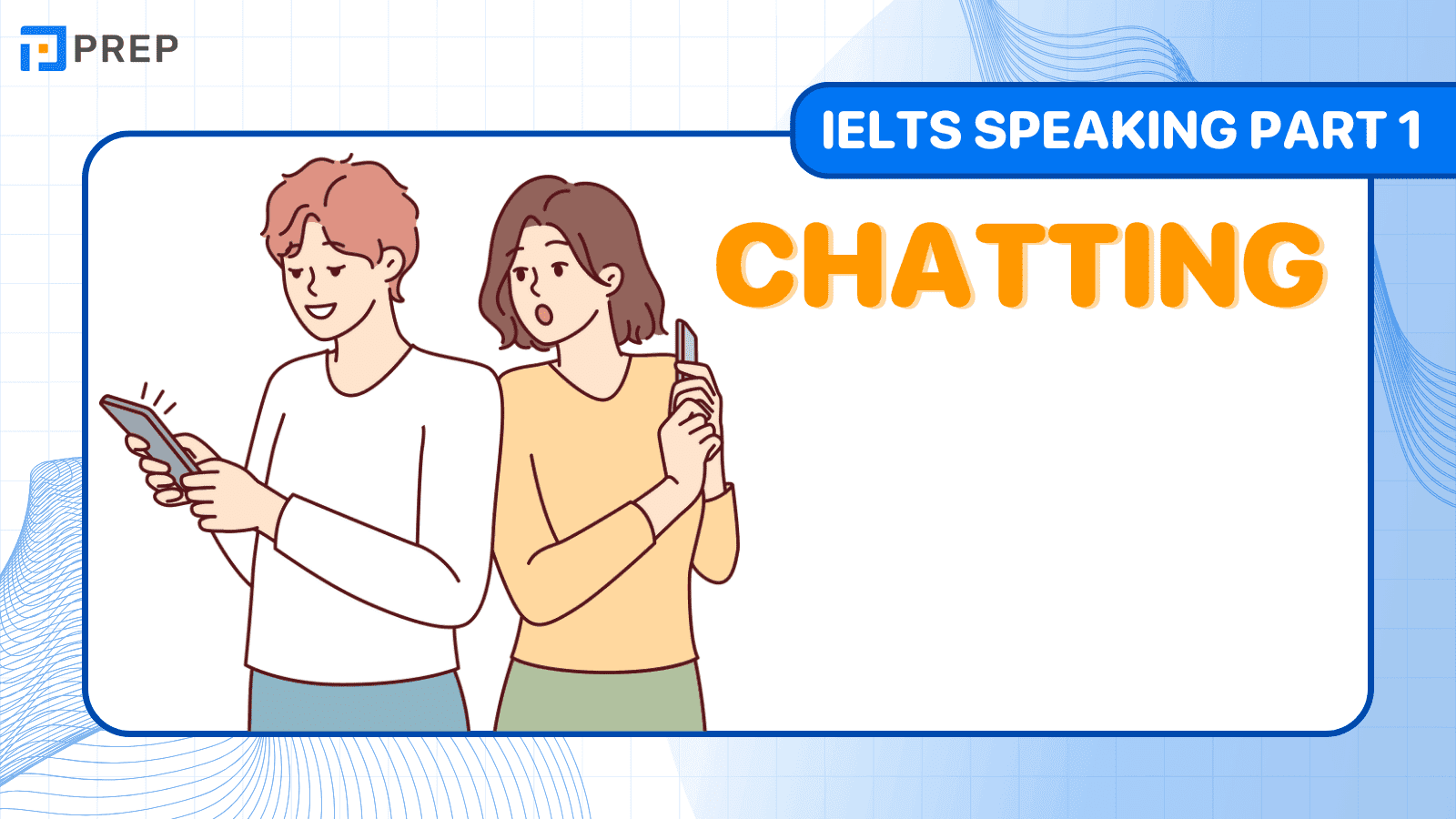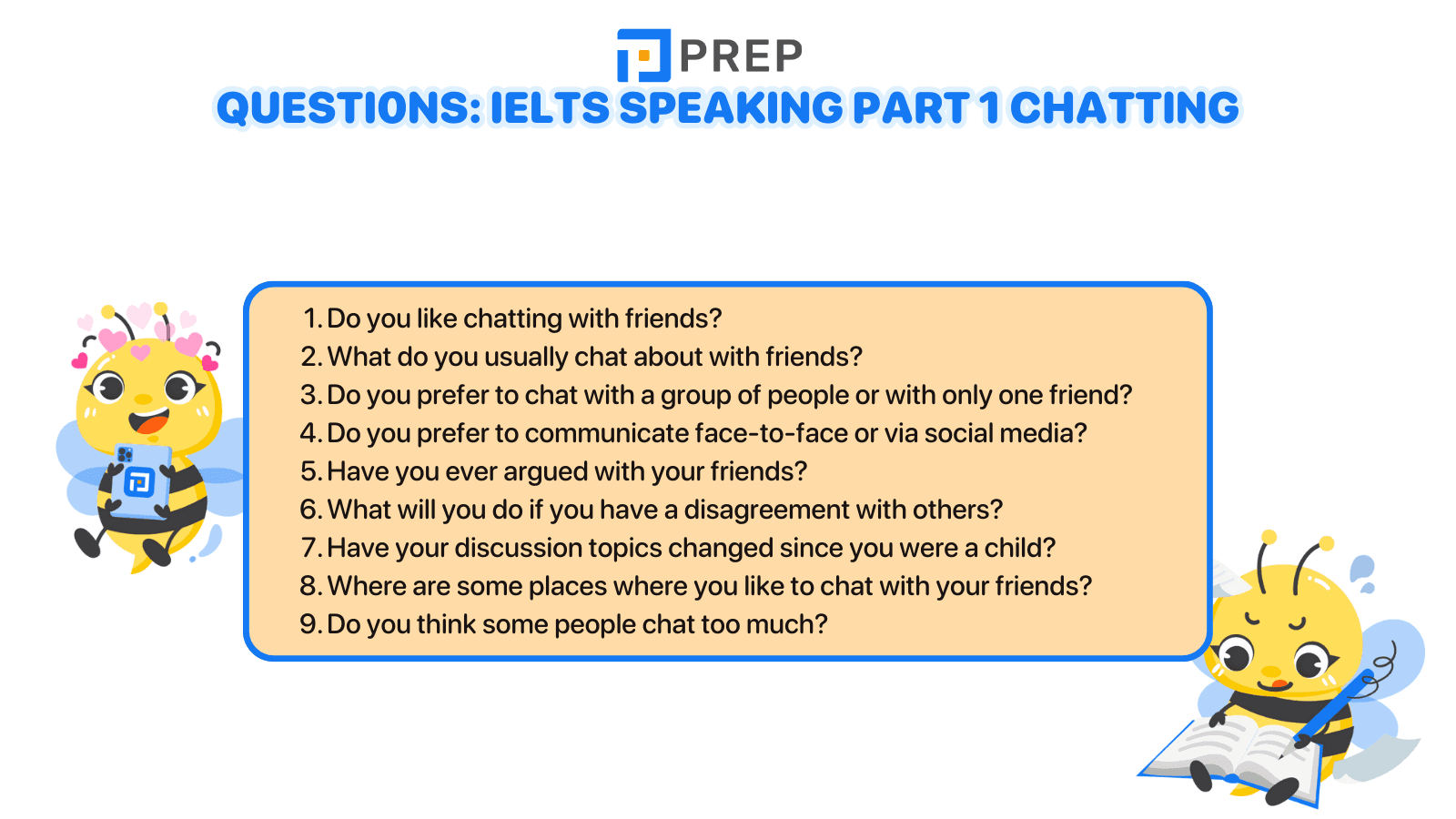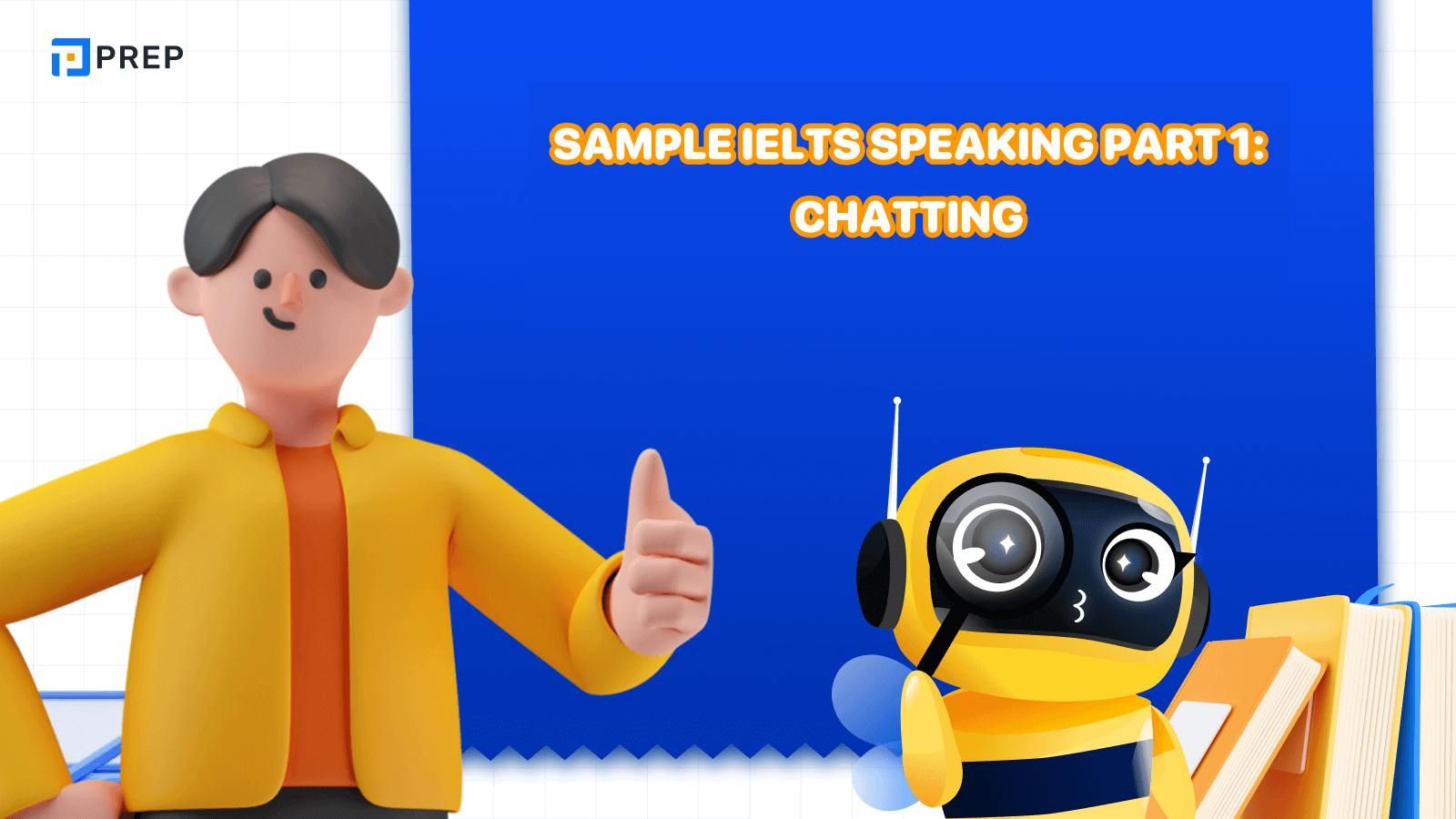Sample IELTS Speaking Part 1 Chatting
Chatting - a topic that is not at all unfamiliar to candidates who are preparing for the IELTS exam. However, have you confidently conquered this topic with a high band score yet? If not, immediately refer to some sample IELTS Speaking Part 1 Chatting responses compiled by the A-grade teachers of PREP below!
*This sample was prepared by Mr. Nhat Pham, an IELTS 8.5 Overall achiever (9.0 Listening, 9.0 Reading, 8.0 Writing, 7.5 Speaking) and Marker Leader at PREP.

I. Sample questions IELTS Speaking Part 1 Chatting
Below are some sample questions IELTS Speaking Part 1 Chatting that the examiners may use to test candidates in the actual exam, specifically:
-
Do you like chatting with friends?
-
What do you usually chat about with friends?
-
Do you prefer to chat with a group of people or with only one friend?
-
Do you prefer to communicate face-to-face or via social media?
-
Have you ever argued with your friends?
-
What will you do if you have a disagreement with others?
-
Have your discussion topics changed since you were a child?
-
Where are some places where you like to chat with your friends?
-
Do you think some people chat too much?

II. Sample IELTS Speaking Part 1 Chatting

Please refer to some sample IELTS Speaking Part 1 Chatting responses at band 7.5+ compiled by A-grade teachers at PREP to effectively practice for the IELTS Speaking exam at home!
1. Do you like chatting with friends?
I absolutely enjoy chatting with them. It's a wonderful way to maintain connections and share thoughts and experiences. I do exchange conversations with my beloved friends frequently, whether it's through messaging apps, phone calls, or meeting in person. Especially now many of my friends have gone abroad studying and working, so chatting with them is something I do on a daily basis.
-
maintain connections: To keep relationships or contacts active and ongoing.
-
share thoughts and experiences: To communicate one's ideas, opinions, emotions, and personal events with others.
-
messaging app: A software application that allows users to send and receive text, audio, video, and other types of messages through a digital communication platform.
2. Do you often chat with friends?
As I mentioned, yes, and I guess this is not only my case but many other people. My girls and I usually exchange words and thoughts in the evening, right after a whole strenuous working day. It is very important to me and my pals as we can open up and release our stress.
-
exchange words and thoughts: To converse and share one's feelings, ideas, and perspectives.
-
Strenuous (adjective) /ˈstren.ju.əs/: Requiring or involving great effort and exertion; arduous, demanding.
-
Release stress: To alleviate or reduce tension, anxiety, or pressure.
3. Do you prefer to chat with a group of people or with only one friend?
While group chats can be great for social gatherings or setting up an event as you want to get most of people's ideas and replies, I generally prefer one-on-one conversations with a single friend. This is because the dialogue is more focused and intimate, rather than hearing many people sometimes talking nonsense; if I do not follow the conversation from the beginning, I just get lost in a ton of messages and icons.
-
Social gathering: An event or occasion where people come together socially.
-
One-on-one conversation: A private discussion between two people.
-
Intimate (adjective) /ˈɪn.tə.mət/: Characterized by a close personal relationship; very private or personal.
-
Talking nonsense: Saying things that are foolish, illogical, or have no real meaning.
4. Do you prefer to communicate face-to-face or via social media?
I love direct conversations since they allow for deeper and more meaningful interactions, as well as sincerity. But I wouldn't say no to social network either because it serves as a convenient tool for staying in touch when distance or time constraints come into play. All in all, it depends on whether my close ones and I are busy, but I will make use of the best time possible for a face-to-face meeting.
-
deeper and more meaningful interaction: More profound and personal engagement.
-
Wouldn't say no to: Would be happy to accept or agree to.
-
convenient tool: An accessible and useful resource.
-
Stay in touch: Maintain an ongoing relationship and communication.
-
Time constraint /kənˈstreɪnt/: A limitation or restriction on the available time.
-
Come into play: Begin to have an effect or become relevant.
5. Do you argue with friends?
They are rare, but disagreements can happen, well, it would be impossible to say there is no argument between us human beings. It is often difficult to reach a consensus on just silly stuff like where to go for dinner, which birthday present we should choose for somebody in our social circle. In the end, it's crucial to resolve a problem through open and respectful communication.
-
Human being /hju'mən 'biʌiη/ (n): A person; a member of the Homo sapiens species.
-
To reach a consensus /tu riʧ kənˈsɛnsəs/: To arrive at a general agreement or understanding.
-
resolve /rɪˈzɑːlv/ a problem: To find a solution or settle a problem.
-
respectful communication (n): Communication characterized by courtesy, politeness, and esteem for others.
III. Conclusion
This article provides the most comprehensive sample answers for the IELTS Speaking Part 1 Chatting at band 7.5+. Good luck with your effective home preparation and achieving your target score soon!
With Prep AI technology, learning IELTS Speaking has never been easier. You will have the opportunity to study online at home with a detailed pronunciation platform, and the smart AI will grade your pronunciation and provide detailed corrections. The Prep AI Virtual Speaking Room will help you practice speaking reflexes as in the real test, with fast, accurate feedback that is 95% aligned with actual exam conditions.
Download the PREP app to study IELTS Speaking effectively at home and make daily progress.
Click HERE to register!

Hi I'm Chloe, and I am currently serving as an Product Content Administrator at Prep Education. With over five years of experience in independent online IELTS study and exam preparation, I am confident in my ability to support learners in achieving their highest possible scores.
Comment
Premium content
View allPersonalized roadmap
Most read












